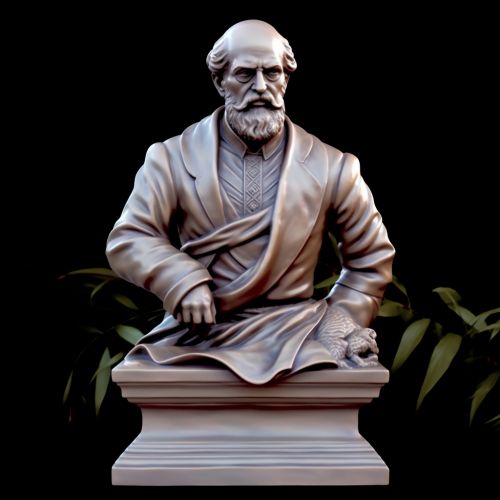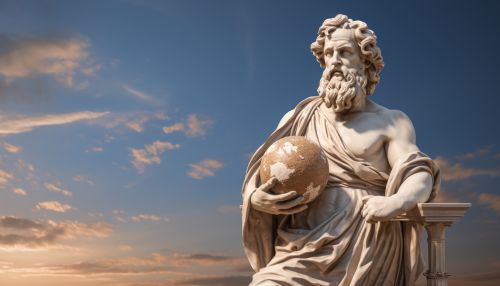Eratosthenes
Early Life
Eratosthenes was born in Cyrene, Libya around 276 BC. Cyrene was a Greek city and an important center of learning in the Hellenistic period. Little is known about his early life and family background, but it is believed that he was well-educated and had a strong interest in learning from a young age.
Education
Eratosthenes studied in Alexandria, one of the great intellectual centers of the ancient world. He was a student of the poet and scholar Callimachus, who was also the head librarian at the Library of Alexandria. It was here that Eratosthenes would have been exposed to a wide range of knowledge, from literature and philosophy to mathematics and astronomy.
Career
Eratosthenes is best known for his work in geography and mathematics. He served as the chief librarian at the Library of Alexandria, a position that allowed him access to a vast wealth of knowledge. He made significant contributions to the fields of geography, mathematics, and astronomy, and is often referred to as the "father of geography."
Geography
Eratosthenes is credited with inventing the discipline of geography. He was the first person to use the word "geography" and to apply mathematical principles to the study of the Earth's surface. His most significant contribution to geography was his calculation of the Earth's circumference.
Using observations of the sun's angle at two different locations, Eratosthenes was able to calculate the Earth's circumference with remarkable accuracy. His method relied on the understanding that the Earth is a sphere and that light from the sun arrives at Earth in parallel rays. This method, known as the Eratosthenian method, is still used today in basic geography classes.
Mathematics
In mathematics, Eratosthenes is known for his work on prime numbers. He developed the Sieve of Eratosthenes, a simple algorithm for finding all prime numbers up to a given limit. This method is still used today in number theory and computer science.
Eratosthenes also made contributions to the field of music theory. He devised a system of tuning a musical scale, known as the Eratosthenian comma, which is a small interval used in the tuning of musical instruments.
Astronomy
In astronomy, Eratosthenes calculated the tilt of the Earth's axis with remarkable accuracy. He also calculated the distance from the Earth to the sun and the moon. His calculations were based on observations of solar and lunar eclipses.
Eratosthenes also created a star catalogue containing 675 stars, which was later incorporated into the work of the astronomer Hipparchus. His work in astronomy laid the foundation for the later work of Ptolemy and other astronomers.
Death and Legacy
Eratosthenes died in Alexandria in 194 BC. His work has had a lasting impact on the fields of geography, mathematics, and astronomy. He is remembered as a pioneering figure in the history of science, and his methods and discoveries continue to be studied and used today.


